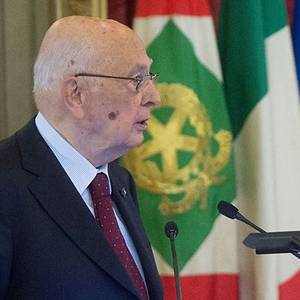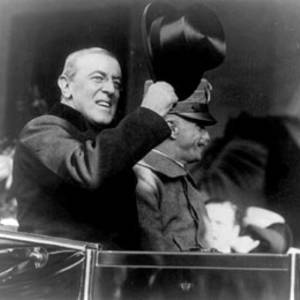In April of 2013 President Giorgio Napolitano had reluctantly agreed to re-election after warring politicians failed to agree upon a successor. Now 89, he told Italians in his ninth and final traditional New Year’s Eve address, “I believe I am no longer able to carry out my responsibilities. It is time to return to constitutional regularity. I did my best.” At this first formal confirmation of his forthcoming resignation, listeners were deeply moved, but also, judging from talk shows and tweets, surprisingly self-analytical.
You chose: president
-
-
The full text about a presumed swap between the Italian powers-that-be and the Sicilian Mafia back in the Nineties is yet to be released. But already President Giorgio Napolitano’s three-hour testimony Oct. 28 before a Palermo court, transferred inside the Quirinal Palace in Rome, confirmed that the Sicilian Mafia had indeed tried to blackmail the Italian government. Because of his office, Napolitano was not obliged to answer prosecutors’ questions, but elected to do so and, in so doing, offered an admirable image of democracy at work.
-
Despite a generalized sigh of relief, concerns remain that this year's Italian political debacle is not yet over. The newly re-elected President Giorgio Napolitano, 87, speaking with breaking voice, warned of the risks the country continues to run. In his address to the Parliament after his swearing in Monday, he called for talks to begin immediately for creation of a new government following two months of impasse since a national general election brought three warring parties into what could become a "fatal deadlock," in Napolitano's words. Implicitly warning that new elections will be the result of failed negotiations for a new government, he also admonished the political leaders of the risk of "ungovernability, at least for this legislature." The concerns go beyond Italy itself. As European leaders point out, a politically and economically weak Italy is of generalized concern because unable to act as a counterpoise within Europe to German power. Negotiations began Tuesday.
-
Why I'm voting for Obama, and so should you.
-
Washington. Prof. Stefano Albertini, Director of Casa Italiana Zerilli Marimò at NYU, met the President of the Italian Republic Giorgio Napolitano on the occasion of a private encounter with a group of professors in important American universities. Here are his impressions and feelings... Stay tuned. For more on this important topic...
-
"If there is anyone out there who still doubts that America is a place where all things are possible; who still wonders if the dream of our founders is alive in our time; who still questions the power of our democracy, tonight is your answer".
-
Woodrow Wilson may have been a "war President", as Bush is today, but when it came to earning international approval, Wilson had the significant advantage of winning his war. When he traveled to Italy, the spoils of victory came in the form of unending popular praise and streams of flowers
-
Bush is taking off for his European farewell tour but it looks as though the President won't be getting a rock star's welcome from the people, in Italy or elsewhere. Beyond the platitudes and hand shakes from heads of state is the soaring disapproval of many Europeans themselves. We examine how almost 100 years ago, before the seemingly irreparable debacles of this administration, an American President traveling to Italy could, if anything, count on a veritable lovefest of popular support




































